Users can expect to find a comprehensive list of vocabulary related to core cooking techniques on this page. They will also find links to games, flashcards, and other resources to help them study and master the terminology associated with this subject.
Core cooking techniques are essential skills that every chef or home cook should master in order to create delicious meals. These techniques include methods such as sautéing, roasting, braising, and grilling, which all require a combination of heat, timing, and seasoning to achieve the desired results. Understanding these fundamental cooking techniques allows individuals to experiment with different flavors and ingredients, leading to a more diverse and satisfying culinary experience.
Practice & Reinforce Your Learning
Core Cooking Techniques Vocabulary List
Cooking Techniques
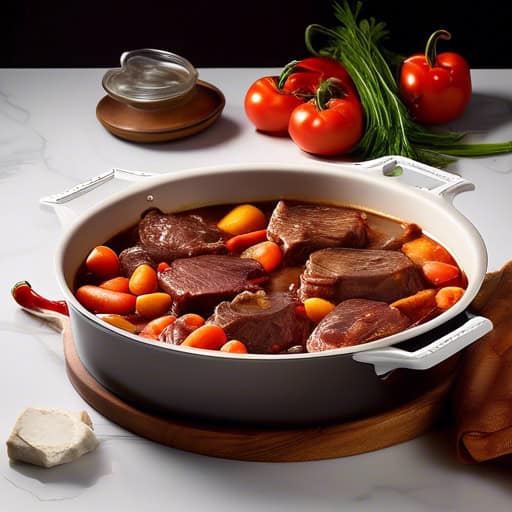
Braise(Verb)
/Braise: breɪz/
To braise is to cook food slowly in a small amount of liquid, usually covered, until tender and flavorful.
Synonyms: simmer, stew, cook slowly, pot-roast, casserole, slow-cook
Example Sentences:
- The chef decided to braise the short ribs in red wine and beef broth for several hours until they were fall-apart tender.
- I love the way the flavors of the vegetables intensify when you braise them in a savory broth.
- For a cozy winter meal, I like to braise a whole chicken with root vegetables in a rich chicken stock.
Word Origin: The word "braise" comes from the French word "braiser," which means to cook slowly in a closed container with a small amount of liquid. This cooking technique involves browning meat or vegetables in fat, then simmering them in a covered pot with a small amount of liquid, such as broth or wine, until tender. This method of cooking helps to tenderize tough cuts of meat and infuse flavors into the dish.
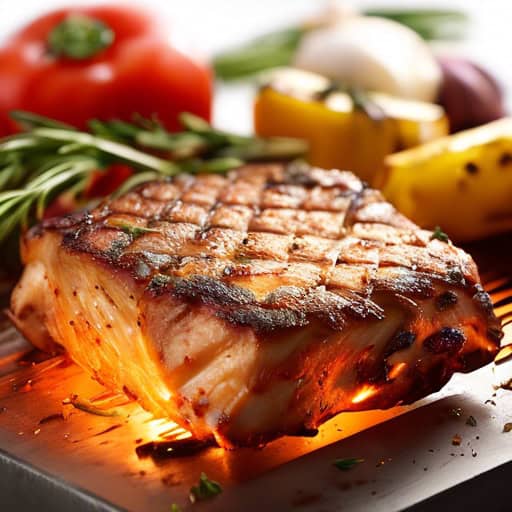
Broil(Verb)
/broil - broil/
Broiling is a cooking technique that involves exposing food to direct heat from above, resulting in a crispy exterior.
Synonyms: grill, roast, barbecue, char, sear, sizzle, scorch, cook, heat, toast
Example Sentences:
- I prefer to broil my steak in the oven for a perfectly charred crust.
- The recipe calls for broiling the salmon fillets for a few minutes on each side.
- Broiling vegetables is a quick and easy way to achieve a deliciously caramelized finish.
Word Origin: The word "broil" comes from the Old French word "bruller," which means "to burn" or "to broil." This term was derived from the Latin word "bruciare," which also means "to burn." In the context of cooking techniques, broiling refers to a method of cooking food by exposing it directly to high heat, typically from above. This causes the food to cook quickly and develop a browned or charred exterior, similar to grilling.
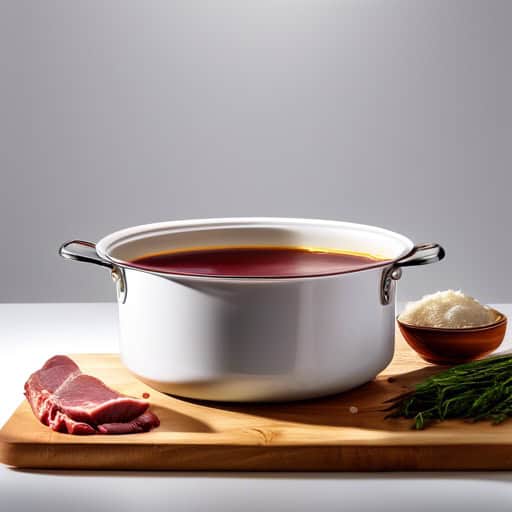
Deglaze(Verb)
/De-glaze: dee-glayz/
To deglaze is to add liquid (such as broth or wine) to a pan to loosen and incorporate flavorful browned bits.
Synonyms: dissolve, rinse, extract, loosen, extract the fond
Example Sentences:
- After searing the meat, the chef deglazed the pan with red wine to create a flavorful sauce.
- Don't forget to deglaze the skillet with broth to make a delicious gravy for the roasted chicken.
- To enhance the flavor of the dish, the recipe calls for deglazing the pan with some white wine.
Word Origin: The word "deglaze" in the context of cooking techniques comes from the French word "déglacer," which means "to remove the glaze" or "to dissolve the sediment" in a pan. The term originated in French cuisine and refers to the process of adding liquid, such as wine, broth, or water, to a hot pan to dissolve and loosen the flavorful browned bits of food that are stuck to the bottom. This technique helps to create a rich sauce or gravy to enhance the flavor of the dish.
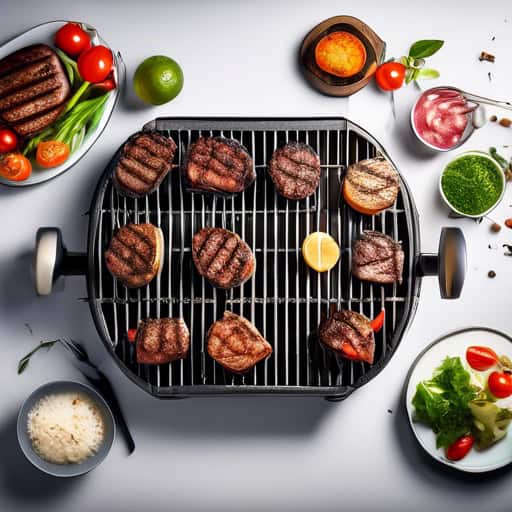
Grill(Verb)
/gril/
Grilling is a cooking technique that involves cooking food directly over high heat on a grill or barbecue.
Synonyms: broil, barbecue, charbroil, sear, cook over an open flame, roast
Example Sentences:
- The smell of the sizzling burgers on the grill filled the backyard with a mouthwatering aroma.
- I love to grill vegetables for a healthy and delicious meal option.
- We decided to have a barbecue and grill some steaks for dinner.
Word Origin: The word "grill" in the context of cooking techniques comes from the Middle English word "grille," which means a grating of metal or wood used for cooking over an open flame. This word ultimately comes from the Old French word "grille," which means a lattice or grating. The use of grills for cooking food over an open flame dates back to ancient times, with various cultures around the world developing their own techniques for grilling meat and other foods. Today, grilling is a popular cooking method that involves cooking food directly over a heat source, such as a gas or charcoal grill.
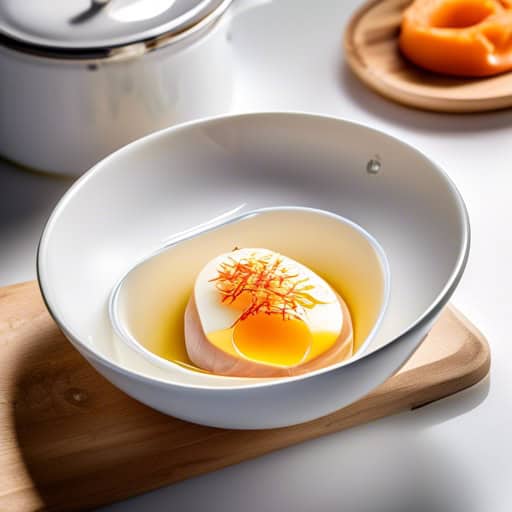
Poach(Verb)
/Poach: poh-ch/
To cook food gently in liquid, typically water or broth, at a temperature just below boiling.
Synonyms: simmer, stew, braise, steam, boil, sauté, fry
Example Sentences:
- The chef taught me how to poach an egg perfectly for breakfast.
- I like to poach chicken breasts in broth for a healthy and flavorful dinner.
- She decided to poach the salmon in white wine for a special meal.
Word Origin: The word "poach" in the context of cooking techniques comes from the Middle English word "pochen," which means to cook gently in water or other liquid. This word is ultimately derived from the Old French word "pocher," which means to put into a pocket or bag. This sense of enclosing or enveloping the food in liquid is reflected in the cooking technique of poaching, where the food is gently cooked in a liquid such as water, broth, or wine.
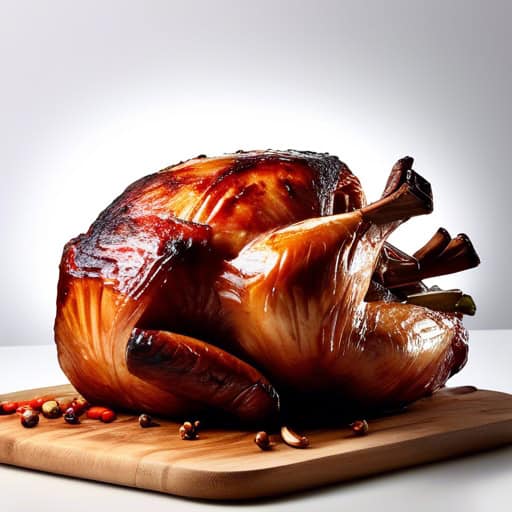
Roast(Verb)
/1. Roast: /roʊst/
2. Oven: /ˈʌvən/
3. Meat: /miːt/
4. Pan: /pæn/
5. Season: /ˈsiːzən/
6. Baste: /beɪst/
7. Juicy: /ˈdʒuːsi/
8. Crispy: /ˈkrɪspi//
To cook food, typically meat, in an oven or over an open flame using dry heat to brown and caramelize.
Synonyms: broil, bake, grill, sear, barbecue, char, toast, brown
Example Sentences:
- The Thanksgiving turkey was slowly roasted in the oven until the skin was crispy and golden.
- I love the smell of a roast chicken cooking in the oven on a Sunday afternoon.
- For a special dinner, we decided to roast a whole leg of lamb with garlic and rosemary.
Word Origin: The word "roast" in the context of cooking techniques comes from the Old French word "roster," which means "to cook on a spit." This in turn comes from the Latin word "rusticare," which means "to roast or cook over an open fire." The use of the word "roast" to describe cooking meat over a fire dates back to the 14th century.
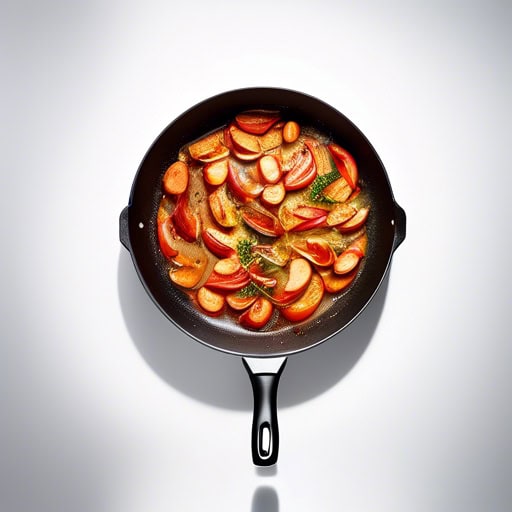
Saute(Verb)
/saw-TAY/
Saute is a cooking technique where food is quickly cooked in a small amount of oil over high heat.
Synonyms: fry, brown, cook, sear, pan-fry, stir-fry, sizzle
Example Sentences:
- I like to saute vegetables in olive oil for a healthy side dish.
- The chef showed me how to properly saute chicken in a skillet.
- You can saute garlic and onions together to create a flavorful base for many dishes.
Word Origin: The word "saute" comes from the French verb "sauter," which means "to jump" or "to leap." In the context of cooking techniques, "saute" refers to a method of cooking in which food is quickly fried in a small amount of oil or butter over high heat. The name reflects the quick, jumping motion that the food makes in the skillet as it is tossed and stirred during the cooking process.
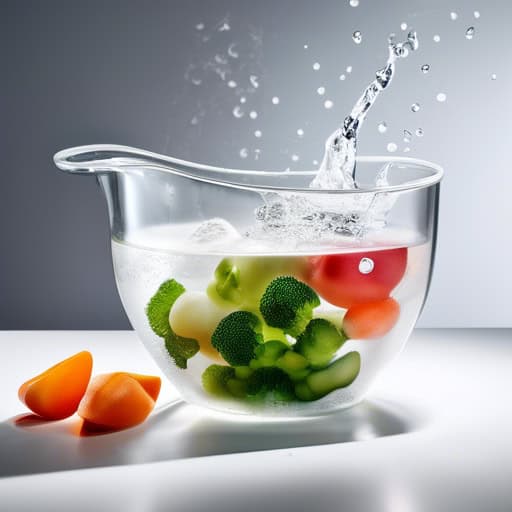
Blanch(Verb)
/blanch - blanch/
Blanching is a cooking technique where food is briefly submerged in boiling water then shocked in ice water to stop cooking.
Synonyms: pale, parboil, scald, blench, bleach, whiten, decolorize
Example Sentences:
- After blanching the green beans, I quickly transferred them to a bowl of ice water to preserve their vibrant color.
- Blanching the tomatoes before peeling them makes the process much easier.
- For perfectly crisp and tender asparagus, blanch them in boiling water for just a few minutes.
Word Origin: The word "blanch" comes from the Old French word "blanchir," which means "to whiten." This likely refers to the fact that blanching involves briefly immersing food in boiling water or steam, which can cause it to turn white or pale in color.
Kitchen terms
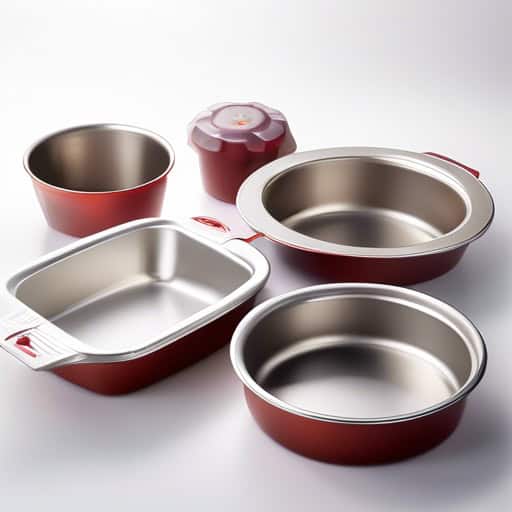
Bakeware(Noun)
/Bake-ware: Beyk-wehr/
Bakeware refers to various types of oven-safe containers and tools used for baking, such as cake pans, cookie sheets, and muffin tins.
Synonyms: cookware, kitchenware, baking tools, baking equipment, ovenware, baking dishes, baking pans
Example Sentences:
- I need to buy some new bakeware for my kitchen because my old cake pans are starting to rust.
- My favorite piece of bakeware is my silicone muffin tin, it makes baking so much easier.
- The non-stick coating on my cookie sheets makes cleanup a breeze after baking.
Word Origin: The word "bakeware" is a compound word formed from "bake" and "ware."
- "Bake" comes from the Old English word "bacan," which means "to cook by dry heat in an oven." It can be traced back to the Proto-Germanic word "bakan," meaning "to bake."
- "Ware" comes from the Old English word "waru," which means "goods, merchandise, things." It is related to the Old High German word "waara," meaning "goods, wares."
Therefore, "bakeware" essentially means "goods or merchandise used for baking," referring to various utensils and containers specifically designed for baking purposes in the kitchen.
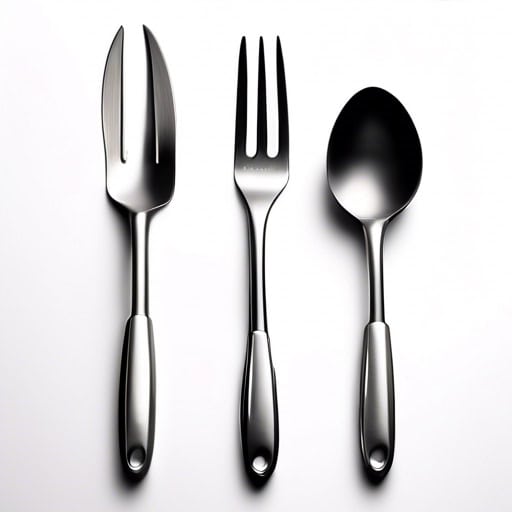
Utensils(Noun)
/Yoo-ten-sils/
Utensils are tools used in cooking to prepare, serve, and eat food, such as knives, spatulas, spoons, and measuring cups.
Synonyms: cookware, cutlery, implements, tools, kitchenware, silverware, tableware, pots and pans
Example Sentences:
- I need to wash the utensils before starting to cook.
- She set the table with elegant silver utensils for the dinner party.
- The chef used a variety of utensils to create the intricate dish.
Word Origin: The word "utensils" comes from the Latin word "utensilia," which means "tools or implements." It ultimately derives from the Latin verb "uti," which means "to use." In the context of kitchen terms, utensils refer to tools or instruments used for cooking, serving, and eating food.
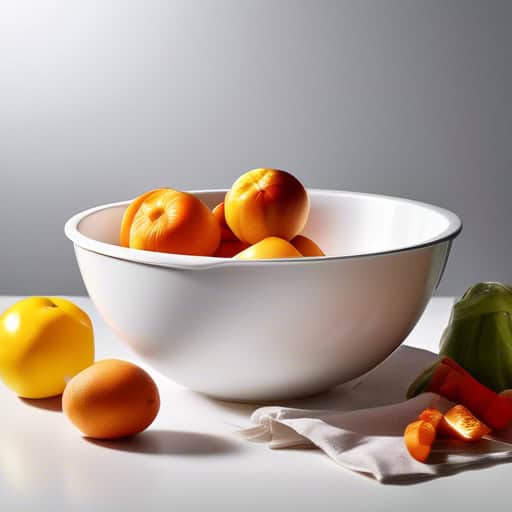
Mixing bowl(Noun)
/Mix-ing bowl: /ˈmɪksɪŋ boʊl//
A mixing bowl is a large bowl used for combining ingredients when cooking or baking, typically made of glass, ceramic, or metal.
Synonyms: batter bowl, mixing container, mixing basin, mixing vessel, batter container, batter basin, batter vessel, kitchen bowl
Example Sentences:
- I need a new mixing bowl for baking cookies this weekend.
- The recipe calls for combining all the wet ingredients in a mixing bowl.
- My favorite mixing bowl is the one with the blue floral design.
Word Origin: The word "mixing bowl" comes from the Old English word "mischen," meaning to mix or blend, and "bol," meaning a round vessel or container. The term has been used in English since the 14th century to refer to a vessel used for mixing ingredients together in cooking and baking.
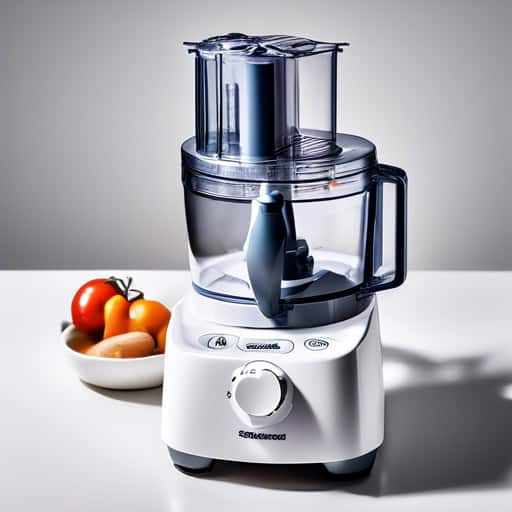
Food processor(Noun)
/Food processor:
Food - foo-d
Processor - pro-ses-er/
A food processor is a kitchen appliance used for chopping, slicing, shredding, and pureeing food ingredients quickly and efficiently.
Synonyms: blender, mixer, chopper, grinder, mincer, slicer, dicer, processor, appliance
Example Sentences:
- I used the food processor to quickly chop up vegetables for the stir fry.
- The food processor made it easy to blend together the ingredients for the pesto sauce.
- I love using my food processor to make homemade hummus from scratch.
Word Origin: The word "food processor" is a compound word made up of "food" and "processor."
- "Food" comes from the Old English word "foda," which means "food" or "nourishment." This word has its roots in the Proto-Germanic word "fodon," which also meant "food."
- "Processor" comes from the Latin word "processus," which means "a way of proceeding" or "a going forward." This word is derived from the verb "procedere," which means "to go forward" or "to advance."
Therefore, the term "food processor" likely originated from the idea of a machine or device that helps process or prepare food in a more efficient and advanced way.
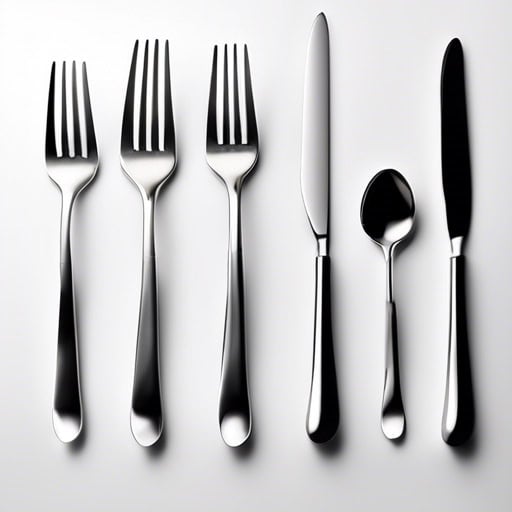
Cutlery(Noun)
/Cutlery: KUHT-luh-ree/
Cutlery refers to knives, forks, and spoons used for eating and cooking in the kitchen.
Synonyms: silverware, flatware, tableware, utensils, eating utensils
Example Sentences:
- I always make sure to set the table with clean cutlery before dinner.
- The restaurant had high-quality cutlery that made the dining experience even more enjoyable.
- She carefully placed the shiny cutlery back in the drawer after washing it.
Word Origin: The word "cutlery" comes from the Middle English word "cotelerie," which is derived from the Old French word "coutelerie," meaning "cutting tools." It ultimately comes from the Latin word "cultellus," which means "small knife" or "dagger." The term originally referred to knives and other cutting tools used for food preparation and eating, but it has since expanded to include a wide range of utensils used in the kitchen, such as forks, spoons, and serving implements.
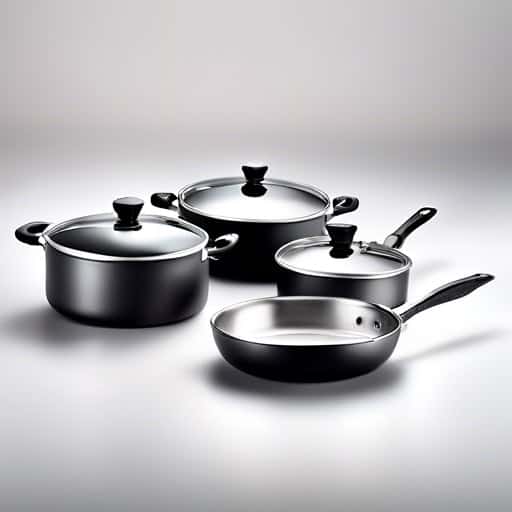
Cookware(Noun)
/Cook - wehr/
Cookware refers to pots, pans, and other utensils used for cooking food on a stovetop, oven, or other heat source.
Synonyms: pots, pans, bakeware, utensils, skillets, dishes, cookery, kitchenware
Example Sentences:
- I need to buy new cookware because my old pots and pans are starting to rust.
- The nonstick coating on my cookware is peeling off, so I have to be careful not to use metal utensils.
- My mom gave me a set of copper cookware for my birthday, and I can't wait to try them out in the kitchen.
Word Origin: The word "cookware" is a compound word formed from "cook" and "ware." "Cook" is derived from the Old English word "coc," which originally referred to a cook or a person who prepares food. "Ware" comes from the Old English word "waru," meaning "articles" or "goods." Therefore, "cookware" refers to the various articles or goods used for cooking in the kitchen.
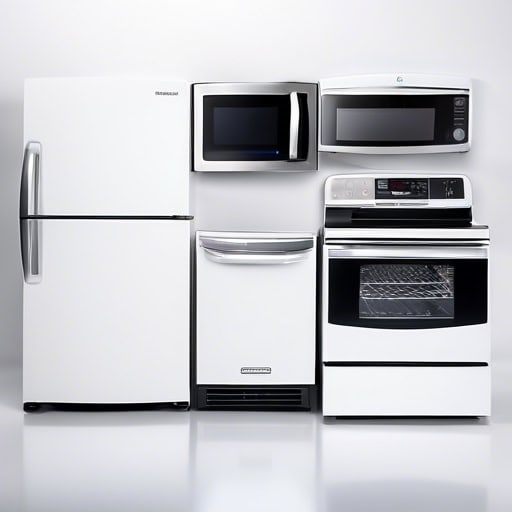
Appliances(Noun)
/A-puh-lie-un-siz/
Appliances are devices used in the kitchen to assist in cooking and food preparation, such as stoves, ovens, and microwaves.
Synonyms: stove, oven, refrigerator, dishwasher, microwave, toaster, blender, mixer, coffeemaker, slow cooker
Example Sentences:
- My new kitchen appliances make cooking dinner so much easier.
- I need to replace the old appliances in my kitchen because they keep breaking down.
- I love shopping for new kitchen appliances to upgrade my cooking space.
Word Origin: The word "appliance" comes from the Latin word "applicare," which means "to apply" or "to attach." In the context of kitchen terms, "appliances" refer to devices or tools that are attached or applied to perform specific functions in the kitchen, such as cooking, cleaning, or food preservation. The term has been used in this context since the late 19th century.
Measurement units
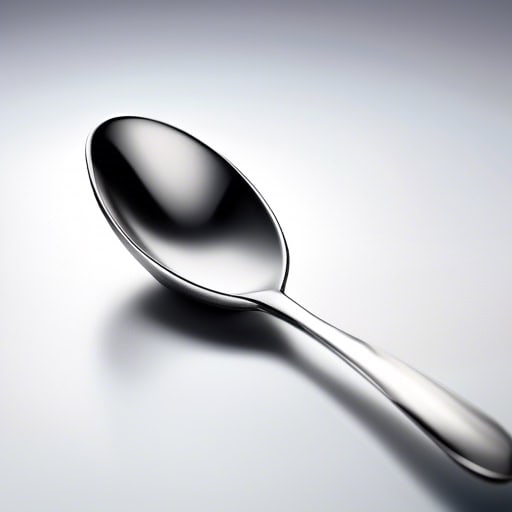
teaspoon(Noun)
/tee-spun/
A teaspoon is a small measuring unit equal to about 5 milliliters, commonly used in cooking to measure small amounts.
Synonyms: tablespoon, dessert spoon, coffee spoon, small spoon
Example Sentences:
- I added a teaspoon of sugar to my coffee this morning.
- The recipe calls for a teaspoon of vanilla extract.
- Can you pass me a teaspoon so I can stir my tea?
Word Origin: The word "teaspoon" originated in the late 17th century, derived from the combination of "tea" and "spoon." This term was used to refer to the small spoon traditionally used for stirring sugar or milk into tea. Over time, the term "teaspoon" also came to be used as a unit of volume in cooking and baking, equivalent to one-third of a tablespoon or roughly 5 milliliters.
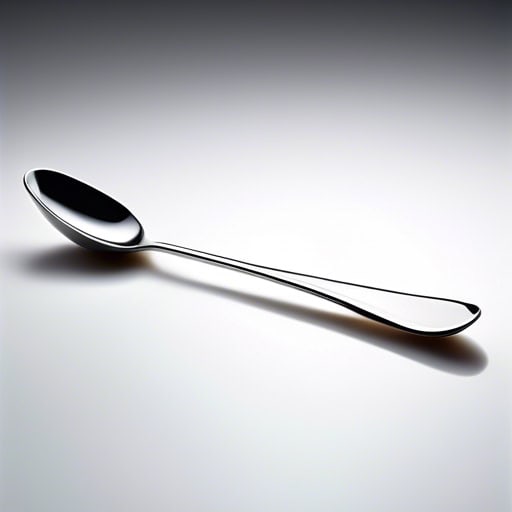
tablespoon(Noun)
/table-spoon/
A tablespoon is a unit of volume measurement commonly used in cooking, equivalent to approximately 15 milliliters or 3 teaspoons.
Synonyms: tbsp, tablespoonful, tablespoonfuls, T, Tbs, Tbsp.
Example Sentences:
- She added a tablespoon of sugar to the cookie dough.
- The recipe called for two tablespoons of olive oil.
- He stirred in a tablespoon of vanilla extract to the cake batter.
Word Origin: The word "tablespoon" originates from the combination of "table" (referring to the table where meals are eaten) and "spoon" (a utensil used for eating and serving food). The term likely emerged in the 18th century as a standardized unit of measurement for cooking and recipes.
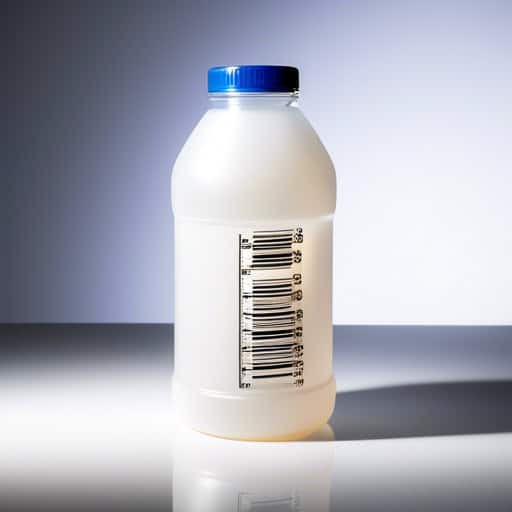
quart(Noun)
/1. quart = kwɔrt
2. quarts = kwɔrts
3. quartet = kwɔrtˈɛt
4. quarter = kwɔrtər
5. quarterly = kwɔrtərli/
A quart is a unit of volume equal to two pints or four cups, commonly used in cooking recipes.
Synonyms: liter, fourth, fourth part, quarter, fourth part of a gallon
Example Sentences:
- I need a quart of milk to make the recipe.
- The recipe calls for one quart of chicken broth.
- Could you pick up a quart of strawberries from the store?
Word Origin: The word "quart" comes from the Old French word "quarte," which was derived from the Latin word "quartus," meaning "fourth." This is because a quart is one-fourth of a gallon, making it a unit of measurement for liquids equal to 32 fluid ounces, two pints, or a quarter of a gallon.
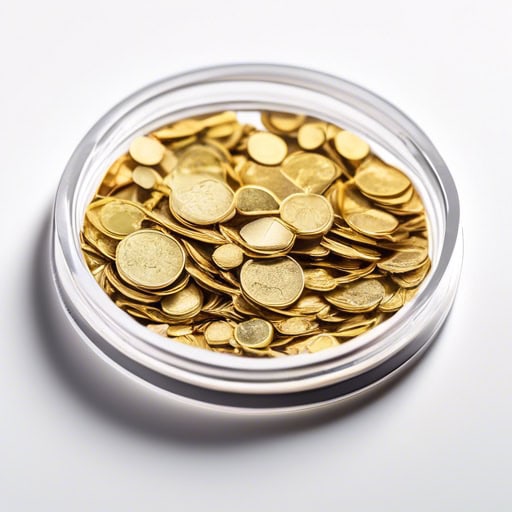
ounce(Noun)
/1. Ounce - ˈaʊns
2. Fluid ounce - ˈfluːɪd aʊns
3. Ounce-force - ˈaʊns fɔːrs/
An ounce is a unit of measurement used to quantify weight in the Imperial and US customary systems, equivalent to 1/16 of a pound.
Synonyms: gram, pound, milligram, kilogram, ton, stone
Example Sentences:
- She only needed an ounce of flour to complete the recipe.
- He measured out an ounce of medicine before administering it to the patient.
- The jeweler carefully weighed each ounce of gold before crafting the necklace.
Word Origin: The word "ounce" comes from the Latin word "uncia," which means one twelfth of a Roman pound. The term was later borrowed into Old French as "unce," and then into Middle English as "ounce." The unit of measurement known as an ounce has been used in various systems of measurement throughout history, and it typically refers to a unit of weight equivalent to 1/16 of a pound.
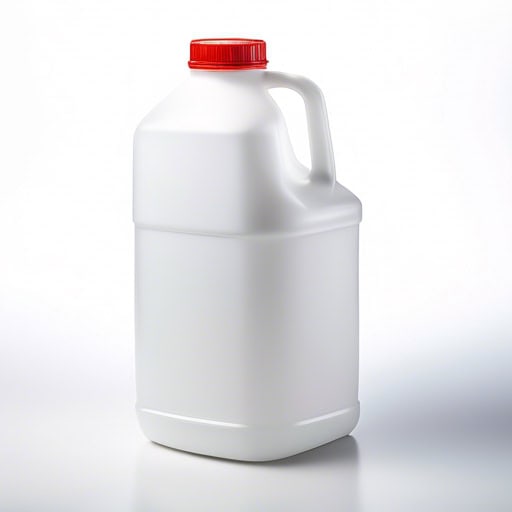
gallon(Noun)
/gal-lon/
A gallon is a unit of volume measurement equal to four quarts or 128 fluid ounces commonly used in cooking.
Synonyms: quart, pint, liter, half gallon, fluid ounce
Example Sentences:
- I need to buy a gallon of milk at the grocery store.
- The recipe calls for a gallon of water to boil the pasta.
- The gas tank of my car can hold up to 15 gallons of fuel.
Word Origin: The word "gallon" has its origins in Old Northern French "galon," which referred to a liquid measure equivalent to 4 quarts or 8 pints. This term is thought to have been derived from the Late Latin "galleta," meaning a liquid measure. Ultimately, the word can be traced back to the Latin "galletum," which referred to a wine vessel. The term "gallon" has been used in English since the 13th century to denote a unit of measurement for liquids.
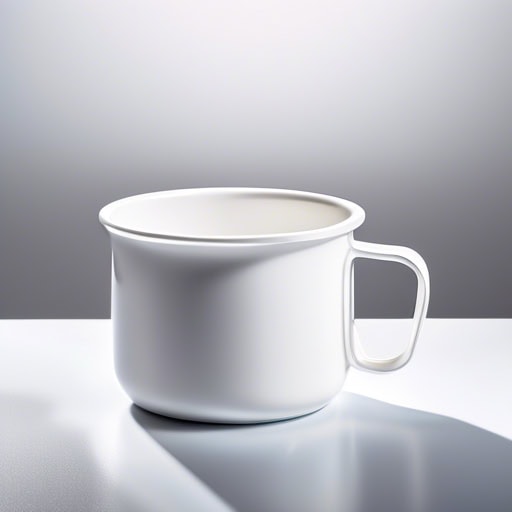
cup(Noun)
/1. Cup: kʌp
2. Teacup: tiːkʌp
3. Measuring cup: ˈmɛʒərɪŋ kʌp
4. Coffee cup: ˈkɒfi kʌp/
A cup is a unit of volume measurement commonly used in cooking, equivalent to 8 fluid ounces or 16 tablespoons.
Synonyms: ounce, pint, quart, gallon, liter, milliliter
Example Sentences:
- I always start my day with a hot cup of coffee.
- She poured the flour into the mixing bowl using a measuring cup.
- He won the championship trophy and proudly held up the shiny silver cup.
Word Origin: The word "cup" in the context of measurement units comes from the Old English word "cuppe," which is derived from the Latin word "cuppa" meaning "a tub or small vessel for liquid." The use of the term "cup" to refer to a specific unit of measurement likely originated from the practice of using a specific type of cup or vessel to measure out a standardized amount of liquid or dry ingredients. Over time, the term "cup" became standardized as a unit of measurement equal to 8 fluid ounces in the United States and slightly different amounts in other countries.
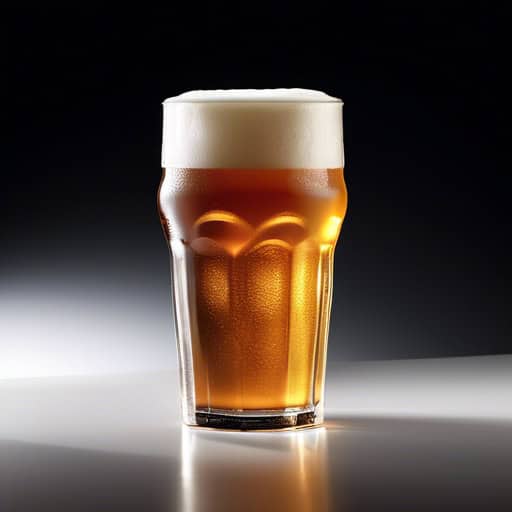
pint(Noun)
/1. Pint: pint
2. Measurement: me-zhur-muhnt
3. Unit: yoo-nit/
A pint is a unit of measurement in the US customary system equal to 16 fluid ounces or approximately 473 milliliters.
Synonyms: cup, ounce, quart, gallon, liter, milliliter
Example Sentences:
- I ordered a pint of beer at the bar last night.
- She poured herself a pint of milk for her cereal.
- The recipe calls for a pint of heavy cream.
Word Origin: The word "pint" comes from the Old French word "pinte," which in turn comes from the Late Latin word "picta," meaning "painted." This term was used to refer to a liquid measure that was marked or painted on a vessel, indicating the volume of a pint.
Recipe terms
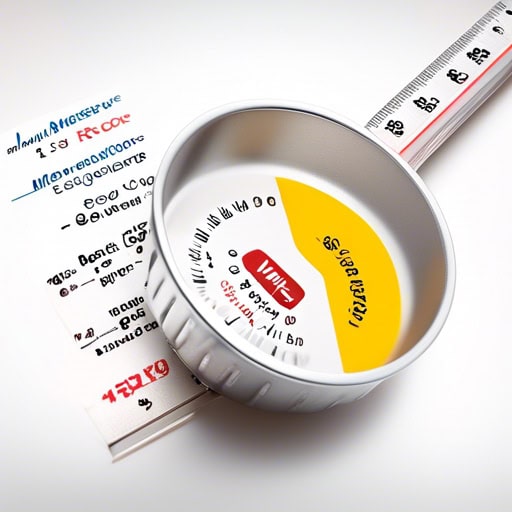
measure(Noun)
/1. Mea-sure (mezh-er)
2. Teas-poon (tee-spun)
3. Ta-ble-spoon (tay-bul-spun)
4. Cup (kuhp)
5. Oun-ce (owns)
6. Pound (pound)
7. Gram (gram)
8. Mill-i-li-ter (mil-uh-lee-ter)
9. Pinch (pinch)
10. Dash (dash)/
To determine the quantity of ingredients needed for a recipe, typically using tools such as cups, spoons, or scales.
Synonyms: weigh, quantity, amount, portion, size, degree, gauge, extent, level, dose, proportion, scale
Example Sentences:
- She took out a ruler to measure the length of the table.
- The success of the project will be determined by how we measure our progress.
- In order to bake a cake, you must measure out the ingredients carefully.
Word Origin: The word "measure" in the context of recipe terms comes from the Old French word "mesure," which ultimately derives from the Latin word "mensura," meaning "a measuring, a measure, or a measurement." This Latin word is derived from the verb "metiri," which means "to measure." The concept of measuring ingredients in cooking has been important for centuries to ensure accuracy and consistency in recipes.

boil(Verb)
/boil - boyl/
To boil means to heat a liquid until it reaches a point where bubbles break the surface and steam is produced.
Synonyms: simmer, poach, stew, blanch, steam, parboil
Example Sentences:
- The water started to boil as I added the pasta to the pot.
- Please remember to boil the potatoes before mashing them.
- It is important to let the soup simmer after bringing it to a boil.
Word Origin: The word "boil" in the context of recipe terms comes from the Old French word "boillir" which means "to bubble up, boil." This word ultimately comes from the Latin word "bullire" which means "to bubble, boil." The term has been used in cooking for centuries to refer to the process of heating a liquid until it reaches its boiling point, causing bubbles and steam to rise to the surface.
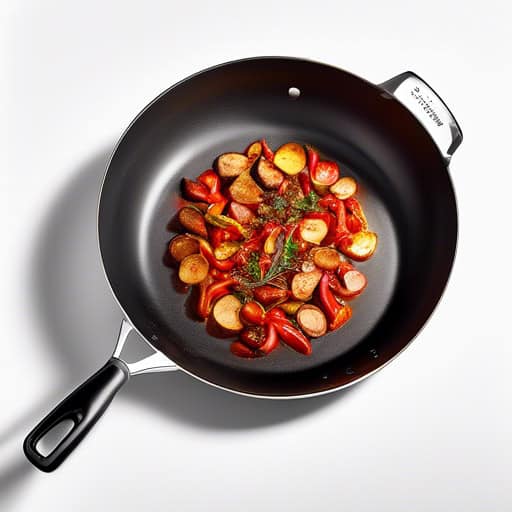
saute(Verb)
/saw-tay/
Saute is a cooking technique where food is quickly cooked in a small amount of oil over high heat.
Synonyms: fry, cook, brown, sear, pan-fry, stir-fry, sizzle
Example Sentences:
- I love to saute mushrooms in butter and garlic for a delicious side dish.
- The chef demonstrated how to saute the vegetables until they were tender-crisp.
- She decided to saute the chicken with a variety of herbs and spices for dinner tonight.
Word Origin: The word "saute" comes from the French verb "sauter," which means "to jump." In the context of cooking, sauteing involves quickly cooking food in a small amount of fat over high heat, causing the food to jump or move around in the pan. This method allows for the food to be cooked quickly while retaining its texture and flavor.
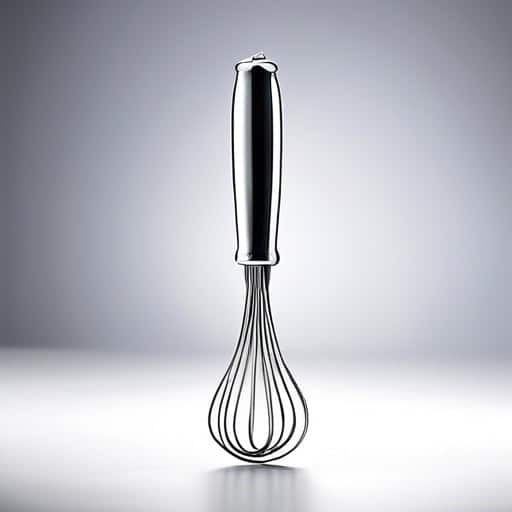
whisk(Noun)
/whisk = wɪsk/
To whisk means to beat ingredients quickly and vigorously using a whisk until they are well combined and smooth.
Synonyms: beat, blend, whip, stir, mix
Example Sentences:
- She used a whisk to beat the eggs for the cake batter until they were light and fluffy.
- The chef quickly whisked the sauce in the pan to prevent it from burning.
- He reached for the whisk to mix the ingredients together for the homemade salad dressing.
Word Origin: The word "whisk" comes from the Middle English word "wysken," which means to move quickly or to sweep. It is related to the Old Norse word "visk," meaning to rush or whisk. In the context of recipe terms, a whisk is a kitchen utensil used for mixing ingredients quickly and efficiently by incorporating air into the mixture.
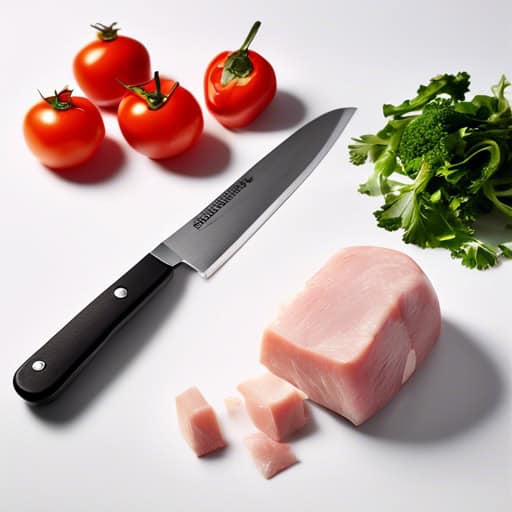
chop(Verb)
/1. Chop: /ʧɒp/
2. Chopping: /ˈʧɒpɪŋ/
3. Chopped: /ʧɒpt/
4. Chopper: /ˈʧɒpər/
5. Chopsticks: /ˈʧɒpstɪks//
To chop means to cut food into small, irregular pieces using a knife, typically used for vegetables, fruits, or herbs.
Synonyms: dice, mince, slice, cut, cube, shred, slice, julienne
Example Sentences:
- He used a sharp knife to chop the vegetables for the stir-fry.
- The lumberjack swung his axe to chop down the towering tree.
- I like to chop up fresh herbs and sprinkle them over my pasta dishes.
Word Origin: The word "chop" in the context of recipe terms comes from the Old English word "ceapian" which means "to bargain or trade". Over time, it evolved to refer to the action of cutting food into small pieces. This word has been used in English cooking since the Middle Ages.
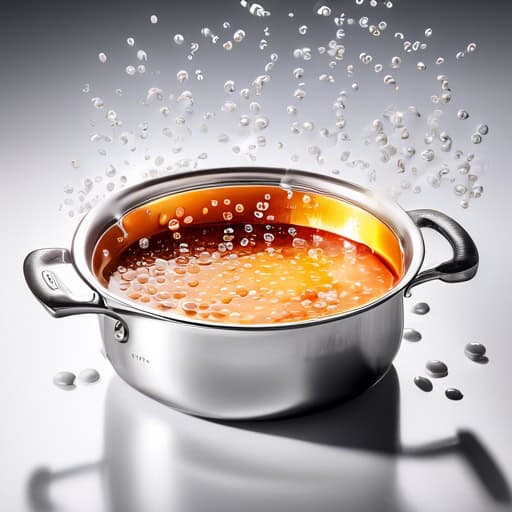
simmer(Verb)
/sim-er/
To simmer means to cook a liquid at a temperature just below boiling, allowing flavors to meld without vigorous bubbling.
Synonyms: stew, cook gently, bubble gently, low heat, slowly cook
Example Sentences:
- The soup began to simmer on the stove, filling the kitchen with a delicious aroma.
- After adding the spices, I let the curry simmer for an hour to allow the flavors to meld together.
- The pot of water was left to simmer on low heat, ready for when I needed to cook pasta later.
Word Origin: The word "simmer" comes from the Middle English word "simperen," which means "to cook slowly over low heat." It is believed to have originated from the Old French word "semer," which means "to boil gently." The term has been used in recipes and cooking instructions since the 17th century to describe the process of cooking food over low heat, just below the boiling point.
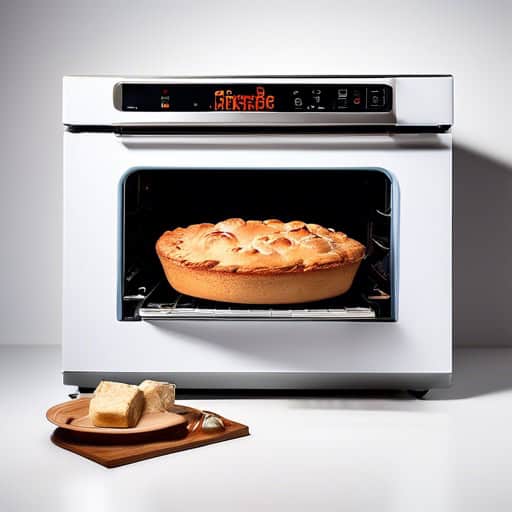
bake(Verb)
/1. Dough: doh
2. Flour: fl-ow-er
3. Knead: need
4. Oven: uh-vuhn
5. Mix: m-ix/
To cook food in an oven using dry heat, typically at a moderate to high temperature, until it is fully cooked.
Synonyms: roast, cook, heat, toast, broil, grill, barbecue, brown, simmer
Example Sentences:
- I love to bake homemade cookies on the weekends.
- She decided to bake a cake for her friend's birthday.
- The smell of freshly baked bread filled the kitchen.
Word Origin: The word "bake" comes from the Old English word "bacan", which means "to bake, to cook by dry heat". It is derived from the Proto-Germanic word "bakan", which has the same meaning. This word ultimately comes from the Proto-Indo-European root *bheh₂g- meaning "to warm, to roast".
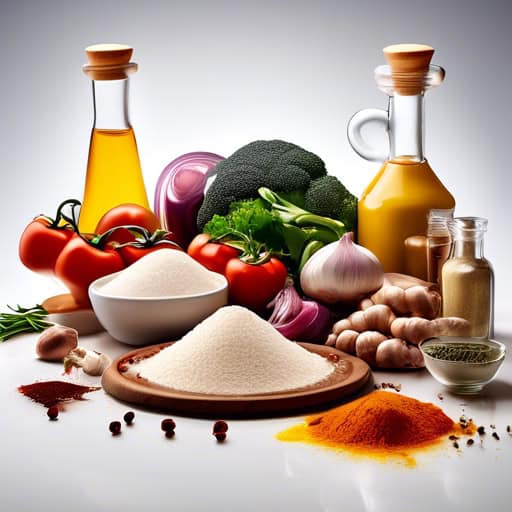
ingredients(Noun)
/in-gree-dee-ents/
Ingredients are the individual components that make up a recipe, such as meat, vegetables, spices, and other food items.
Synonyms: components, elements, parts, items, materials, contents, constituents, pieces, factors
Example Sentences:
- The recipe calls for a list of specific ingredients, including flour, sugar, and eggs.
- Make sure to carefully read the label to check for any potential allergens in the ingredients list.
- The secret to a delicious dish is using fresh, high-quality ingredients.
Word Origin: The word "ingredients" comes from the Latin word "ingrediens," which is the present participle of "ingredior," meaning "to go into, enter." This reflects the idea that ingredients are the individual components that go into making a larger whole, such as a recipe or dish.
Food preparation
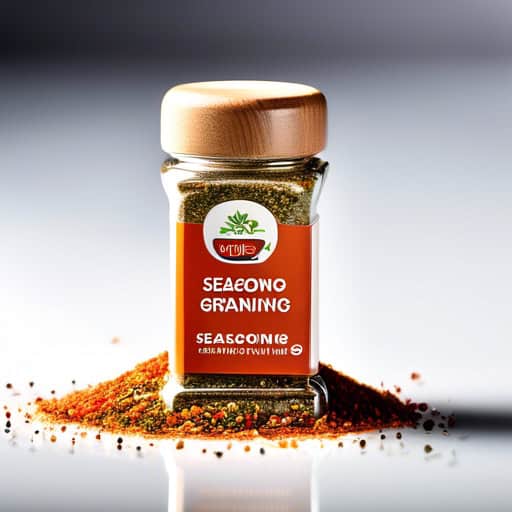
Seasoning(Noun)
/Sea-son-ing/
Seasoning refers to the process of adding salt, herbs, spices, or other flavorings to enhance the taste of food.
Synonyms: spice, flavoring, condiment, herb, seasoning blend, marinade, rub, sauce, dressing, infusion
Example Sentences:
- I always like to use a blend of different seasonings when I cook to create a unique and flavorful dish.
- My grandma's secret to making the best roast chicken was her special seasoning mix that she would sprinkle liberally over the meat before roasting it in the oven.
- Adding a pinch of seasoning can really elevate the taste of a simple salad or soup, turning it into something delicious and satisfying.
Word Origin: The word "seasoning" comes from the Middle English word "sesounen," which means to make suitable for a particular season or occasion. This word is derived from the Old French word "seison," meaning "sowing" or "planting." The term "seasoning" originally referred to the process of adding flavor to food to make it more palatable or suitable for consumption. Over time, the meaning of the word has evolved to include a variety of herbs, spices, and other ingredients used to enhance the taste of dishes.
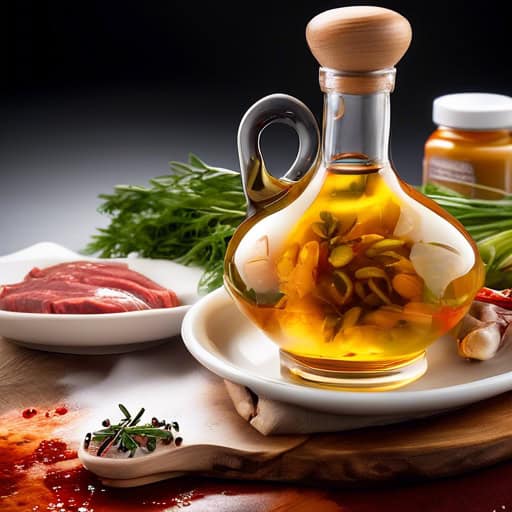
Marinate(Verb)
/Marinate: MA-ri-NATE/
To marinate means to soak food in a seasoned liquid mixture, typically with spices, herbs, and acids like vinegar or citrus juice.
Synonyms: soak, steep, season, flavor, infuse, drench, saturate, immerse, pickle, dress
Example Sentences:
- The recipe calls for the chicken to marinate in a mixture of soy sauce, ginger, and garlic for at least an hour before grilling.
- I like to marinate my vegetables in balsamic vinaigrette before roasting them in the oven.
- For the best flavor, allow the meat to marinate overnight in the refrigerator before cooking.
Word Origin: The word "marinate" comes from the Latin word "marinatus," which means "to soak in brine." This word is derived from the Latin word "marinus," meaning "of the sea" or "pertaining to the sea." The term was originally used to describe the process of soaking food in a mixture of salt and water to preserve it, particularly fish. Over time, the meaning of "marinate" evolved to refer to soaking food in a seasoned liquid to add flavor and tenderize it before cooking.
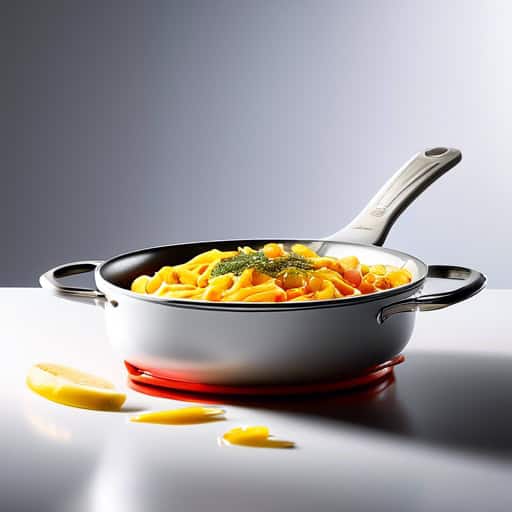
Saute(Verb)
/saw-tay/
Saute is a cooking technique where food is quickly cooked in a hot pan with a small amount of oil.
Synonyms: fry, cook, pan-fry, stir-fry, sear, brown, grill, broil, roast
Example Sentences:
- I love to saute mushrooms with garlic and thyme for a delicious side dish.
- The chef demonstrated how to properly saute vegetables to maintain their crispness.
- After marinating the chicken, I sauteed it in a hot pan until it was golden brown on the outside.
Word Origin: The word "saute" comes from the French verb "sauter," which means "to jump" or "to leap." In the context of food preparation, "saute" refers to a cooking technique where food is quickly cooked in a hot pan with a small amount of fat, allowing it to brown and develop flavor. The term "saute" likely comes from the quick, jumping motion used to toss and stir the food in the pan while it cooks.
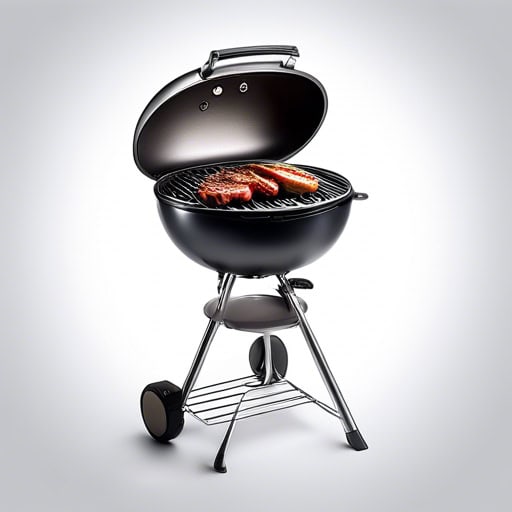
Grill(Noun)
/Grill: g-r-ih-l/
Grilling involves cooking food over direct heat, typically on a grill or barbecue, to impart a smoky flavor and char marks.
Synonyms: barbecue, broil, cook, sear, roast, char, charbroil, flame, toast
Example Sentences:
- I love to grill vegetables and meats for a healthy dinner option.
- The backyard grill is my favorite way to cook during the summer.
- We are planning to have a barbecue this weekend and grill some burgers and hot dogs.
Word Origin: The word "grill" in the context of food preparation comes from the Middle English word "grille," which originally referred to a metal grate used for cooking over a fire. This term ultimately comes from the Old French word "graille," meaning "grate" or "gridiron." The use of grilling as a cooking method dates back to ancient times, with evidence of grilling techniques found in various cultures around the world.
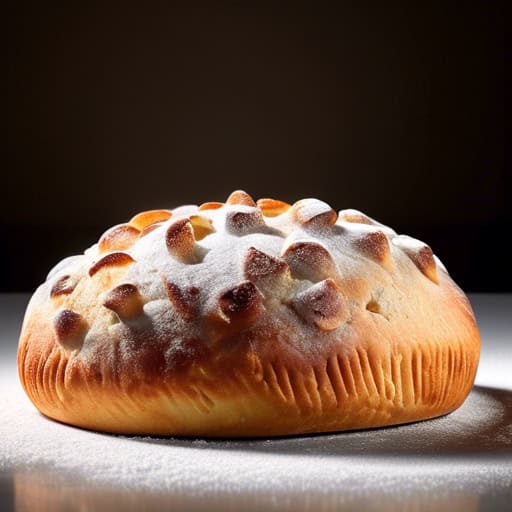
Bake(Verb)
/1. Butter: BUT-er
2. Flour: FLOW-er
3. Sugar: SHOO-gar
4. Oven: OH-ven
5. Mix: MICKS
6. Dough: DOH
7. Pan: PAN
8. Timer: TYE-mer
9. Recipe: REH-suh-pee
10. Cool: KOOL/
To cook food in an oven using dry heat, typically at a specific temperature for a specific amount of time.
Synonyms: roast, cook, broil, grill, toast, heat, warm, prepare
Example Sentences:
- I love to bake cookies on a rainy day.
- She decided to bake a cake for her friend's birthday.
- The smell of freshly baked bread filled the kitchen.
Word Origin: The word "bake" comes from the Old English word "bacan," which means "to bake, to cook in an oven." This word can be traced back to the Proto-Germanic word "bakan," which also means "to bake." The word has been used in English since the 12th century to refer to the process of cooking food in an oven by dry heat.
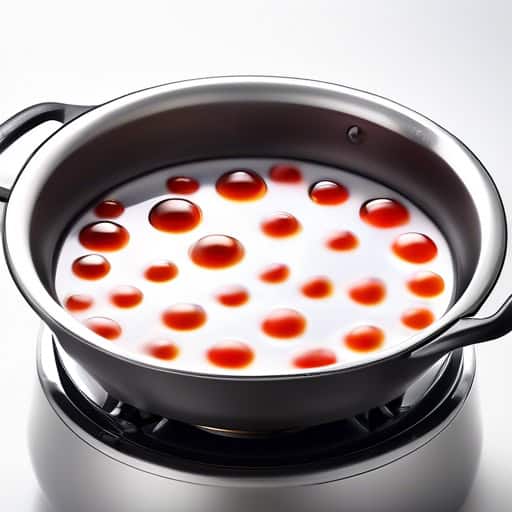
Simmer(Verb)
/Sim-er/
Simmering is a cooking technique where food is cooked gently in liquid at a temperature just below boiling.
Synonyms: bubble, stew, cook gently, heat gently, boil gently, poach, slow-cook
Example Sentences:
- The soup needs to simmer for at least an hour to allow the flavors to fully develop.
- I could hear the sauce beginning to simmer on the stovetop as I chopped the vegetables.
- After adding the spices, let the curry simmer for another 20 minutes before serving.
Word Origin: The word "simmer" in the context of food preparation comes from the Middle English word "simeren," which originally meant to cook gently over low heat. This word can be traced back to the Old English word "simerian," which meant to boil gently or stew. The ultimate origin of the word is uncertain, but it may be related to the Old High German word "simmern," meaning to cook slowly.
Kitchen tools
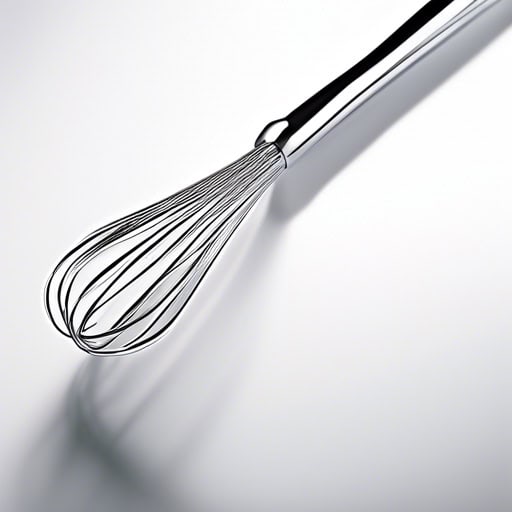
whisk(Noun)
/whisk: wisk/
A whisk is a kitchen tool with wire loops used for mixing, whipping, and incorporating air into ingredients like eggs.
Synonyms: beater, mixer, egg beater, hand mixer, hand whisk, rotary whisk
Example Sentences:
- She used a whisk to beat the eggs for the cake batter.
- He whisked together the flour and milk to make a smooth gravy.
- The chef quickly whisked the cream until it formed stiff peaks.
Word Origin: The word "whisk" comes from Middle English "wysken," which means "to move briskly." This word originated from Old Norse "viskja," meaning "to move quickly." The term "whisk" was later used to refer to a kitchen tool that is used for beating or whipping ingredients quickly.
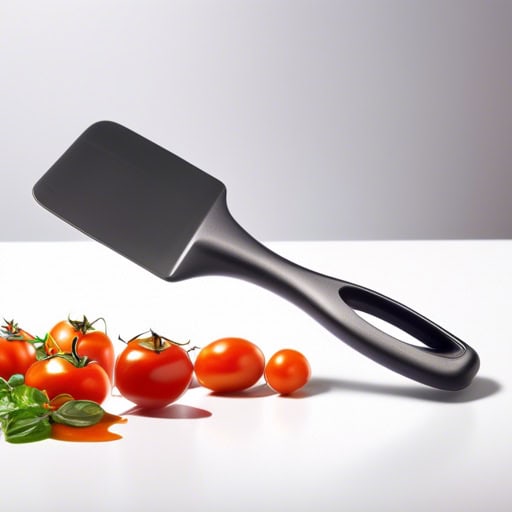
spatula(Noun)
/spa-tu-la/
A spatula is a flat, flexible utensil with a long handle used for flipping, spreading, and serving food in cooking.
Synonyms: turner, flipper, scraper, lifter, spreader, server
Example Sentences:
- I used a spatula to flip the pancakes on the griddle.
- She spread the frosting on the cake with a spatula.
- The chef used a spatula to carefully serve the omelette onto the plate.
Word Origin: The word "spatula" comes from the Latin word "spatula," which means "broad, flat piece." The term was used in ancient Rome to refer to a flat tool used for stirring, spreading, or scraping. The word was later adopted into Old French as "espatule" and eventually into English as "spatula." In the context of kitchen tools, a spatula refers to a flat, flexible tool with a broad, flat end used for flipping, spreading, or lifting food.
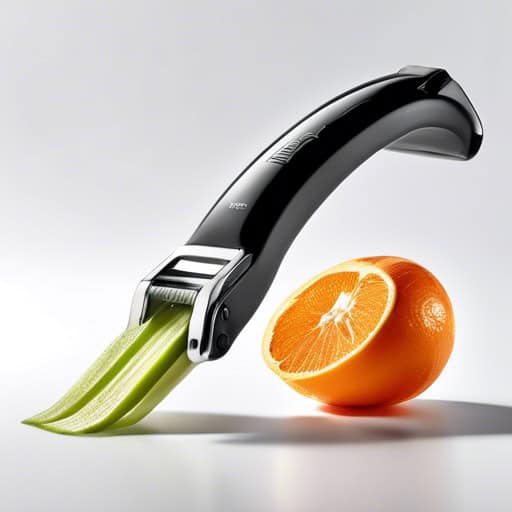
peeler(Noun)
/pee-ler/
A peeler is a kitchen tool used to remove the outer skin or peel of fruits and vegetables with ease.
Synonyms: paring knife, vegetable peeler, mandoline, zester, julienne peeler, apple corer, citrus peeler, garlic press
Example Sentences:
- I used a peeler to quickly remove the skin from the potatoes for dinner.
- The vegetable peeler made it so much easier to prepare the carrots for the salad.
- She grabbed the apple peeler to make quick work of preparing the apples for the pie.
Word Origin: The word "peeler" in the context of kitchen tools comes from the verb "to peel," which originated from Middle English "pelen" or "pulen," and ultimately from the Old English "pyllan." This word has roots in the Proto-Germanic word "pul-" meaning "to strip off" or "to pull off." The use of the word "peeler" to refer to the kitchen tool used for removing the outer skin or rind of fruits and vegetables likely developed from this sense of peeling or stripping off layers.
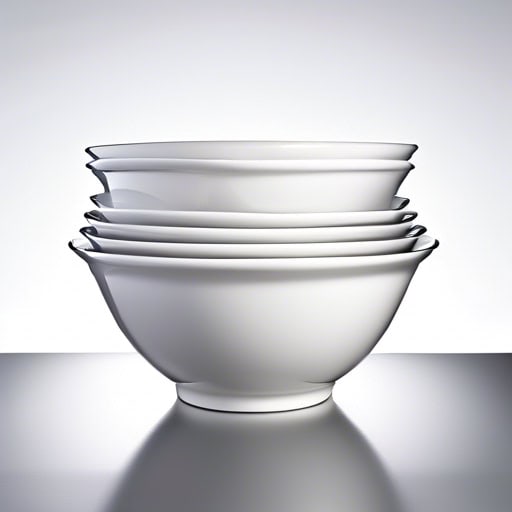
mixing bowls(Noun)
/mix-ing bowls
mɪks-ɪŋ boʊlz/
Mixing bowls are deep, round containers used for combining ingredients in cooking and baking, available in various materials and sizes.
Synonyms: bowls, kitchen bowls, batter bowls, prep bowls, cooking bowls, blending bowls, mixing containers, bowl set
Example Sentences:
- I need to buy some new mixing bowls for my kitchen.
- My favorite mixing bowls are made of stainless steel.
- I always use my largest mixing bowl when making bread dough.
Word Origin: The term "mixing bowl" comes from the combination of the verb "mix," meaning to blend or combine ingredients together, and the noun "bowl," which refers to a round, deep vessel used for holding food or liquids. The concept of mixing bowls has been around for centuries, as people have always needed vessels in which to mix ingredients for cooking and baking. The design and use of mixing bowls have evolved over time, but the basic idea of a container for combining ingredients remains the same.
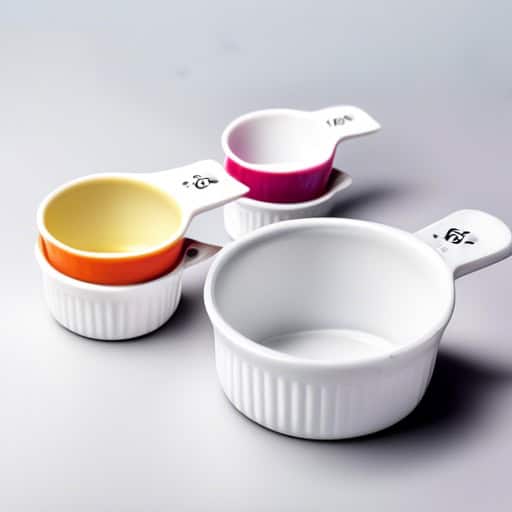
measuring cups(Noun)
/meh-zhur-ing kuhs/
Measuring cups are kitchen tools used to accurately measure liquid or dry ingredients for cooking and baking recipes.
Synonyms: measuring spoons, liquid measuring cups, dry measuring cups, kitchen measuring tools, graduated cups, portion cups
Example Sentences:
- I need to find my measuring cups before I can start baking this cake.
- She poured the flour into the measuring cups to ensure the perfect amount for the recipe.
- The measuring cups were essential for accurately measuring the oil for the salad dressing.
Word Origin: The word "measuring" comes from the Middle English word "mesuren," which is derived from the Old French word "mesure," meaning "to measure." The word "cups" comes from the Old English word "cuppe," which is of Germanic origin.
Therefore, the term "measuring cups" likely originated from the combination of these two words to describe a tool used in the kitchen for measuring ingredients in cooking and baking.
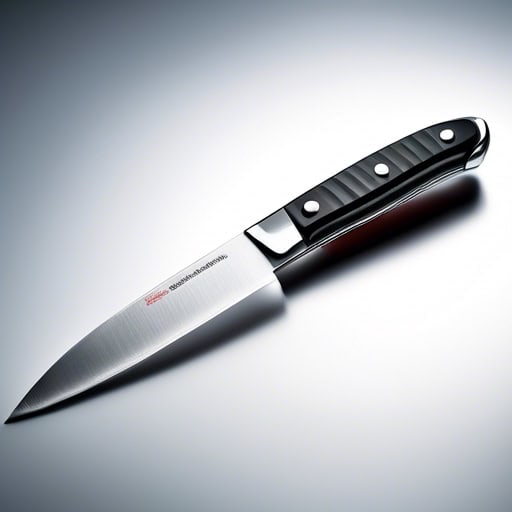
knife(Noun)
/n-ah-y-f/
A knife is a sharp tool used for cutting, chopping, and slicing ingredients in food preparation in the kitchen.
Synonyms: blade, cutter, carving tool, chopper, slicer, paring knife, chef's knife, utility knife, bread knife, steak knife
Example Sentences:
- He carefully used the knife to slice the vegetables for the salad.
- She reached for the knife to cut the cake for the birthday party.
- The chef skillfully wielded the knife to debone the fish.
Word Origin: The word "knife" comes from the Old English word "cnif," which is of Germanic origin. It is related to the Old Norse word "knifr" and the Middle Low German word "knif." These words all ultimately come from the Proto-Indo-European root *gneb(h)-, meaning "to cut." The word has been used to refer to a cutting instrument since the 14th century.
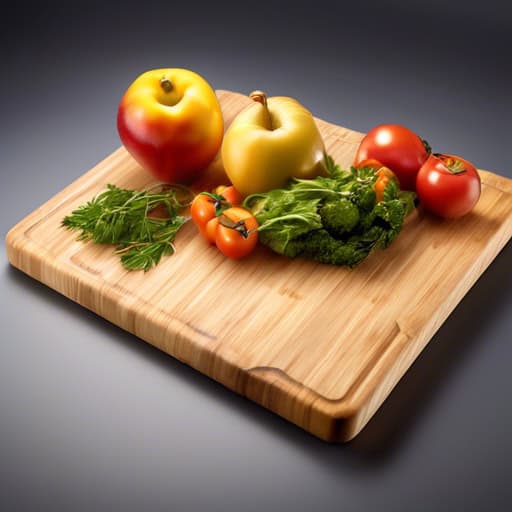
cutting board(Noun)
/Cutting board: /ˈkʌtɪŋ bɔːrd//
A cutting board is a flat, durable surface used for chopping, slicing, and preparing food in the kitchen.
Synonyms: chopping block, cutting mat, prep board, butcher block, slicing board
Example Sentences:
- I always make sure to use a clean cutting board when preparing raw meat to prevent cross-contamination.
- My wooden cutting board has a few knife marks from years of use, but it still works perfectly.
- I prefer to use a plastic cutting board for cutting fruits and vegetables because it's easier to clean.
Word Origin: The term "cutting board" comes from the combination of the words "cutting," which refers to the action of slicing or chopping food, and "board," which refers to a flat, sturdy surface on which the cutting takes place. The use of cutting boards dates back to ancient times when cooks would use flat pieces of wood or stone to prepare food. Over time, cutting boards have evolved to be made from a variety of materials such as wood, plastic, bamboo, and glass, each with their own benefits and drawbacks for food preparation.
Quick Facts
- One of the most important core cooking techniques is sautéing, which involves cooking food quickly in a small amount of oil or butter over high heat.
- Braising is another key technique that involves cooking food slowly in a liquid at a low temperature, resulting in tender and flavorful dishes.
- Grilling is a popular cooking technique that involves cooking food directly over an open flame or heat source, imparting a smoky flavor.
- Roasting is a versatile technique that involves cooking food in an oven at a high temperature, resulting in caramelization and a crispy exterior.
- Poaching is a gentle cooking technique that involves cooking food in a simmering liquid, such as water or broth, resulting in tender and moist dishes.
